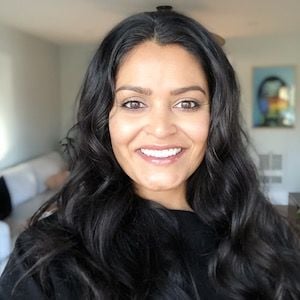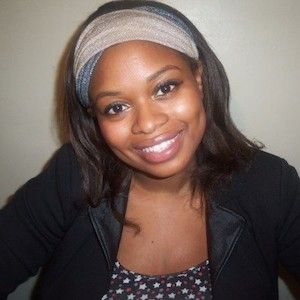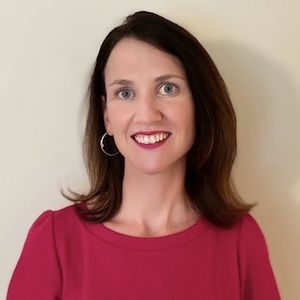Over the last year, technology companies have felt an increasing pressure from customers, employees and the public at large to finally get serious about diversity, equity and inclusion within our industry. One way organizations can follow through on these pledges is to hire leaders specifically charged with DEI efforts. More and more organizations are hiring DEI leaders in the aftermath of last summer’s Black Lives Matter protests, and the field is becoming an increasingly viable career path within the technology industry.
In interviews with DEI leaders at three technology-driven organizations, we learned that DEI leaders come from a variety of professional backgrounds. Virgin Orbit’s Monica Gangwar worked in finance and healthcare before moving to the satellite launch service but credits her volunteering background for steering her into her current field. Daphney Etienne, who manages diversity and inclusion programs for AI-driven marketing platform Persado, has worked in everything from business development to events and recruitment marketing. Meal subscription company Freshly’s Mary Killian came from a HR background in corporate America. And Justin Reyes, who leads DEI at Major League Baseball — an increasingly tech-driven organization — worked in business analytics and finance before making the switch to his current career track.
So what have they learned from their career paths thus far? How do they measure success? What advice do they wish they’d received at the outset of their own career journeys? And how would they advise executives at companies with plenty of goodwill, but little know-how when it comes to building recruiting processes and cultural programs that place DEI front and center? Read on to see what these professionals had to say.
A guide to supporting the development of rising women in tech.
Monica Gangwar, Senior Program Manager for EDI and Learning and Development at Virgin Orbit

Professional background: “What prepared me most for my current role was not my professional career, but the volunteer work I have done throughout my life. This gave me a perspective I don’t think I would have ever had in any of my roles in the different industries I’ve worked in. Giving back to your community opens you up to people who are different from you and gives you the opportunity to listen, learn and connect with a diverse demographic. My volunteer work taught me radical empathy and compassion which has carried over to my professional career, especially in my current role.”
Finding Your Own Path: “Unfortunately, when I was studying in undergrad, equity, diversity and inclusion wasn’t a major at the time and wasn’t something that I was encouraged to seek out because of my own experiences as the daughter of immigrants. At a young age I was curious about racism because although I had experienced it frequently, I couldn’t understand it. So I started researching and reading. Social media has been incredibly important in preparing me for my current role. Years ago, I was tired of seeing how mainstream media covered Black/African-American and immigrant stories, so I decided to follow activists, abolitionists and nonprofits that aligned with my views and content created by marginalized communities. I realized I could control some things, like how I used social media to learn and unlearn and how I connected to folx who are not like me, which was incredibly important in preparing me for my current role.”
“You are not here to be liked by everyone — if you are, you’re not doing your job right.”
How to measure success: “Some of the things we look at to gauge our success include hiring diversity at all levels, including the board; creating a diverse pipeline for promotions, including succession planning for upper management; and survey results to better understand core EDI questions. We also conduct reviews of our current EDI processes and look at the completion of trainings for executives and teammates. KPIs are important, but doing the right thing is what I am focused on. Some things cannot be measured through data but rather through people’s experiences and how they are treated and respected.”
Career advice: “Take responsibility for the failures. Even though it may not be in your control, you shouldn’t take credit for the good and not the bad. These are all learning experiences and you are not here to be liked by everyone — if you are, you’re not doing your job right. Have support within the company at all levels and from a diverse set of colleagues. Find an amazing mentor who is brilliant and authentic, who will always have your best interest in mind and be honest with you. Surround yourself with people who will help you walk away from the ledge instead of off the ledge — because you will find yourself on a ledge from time to time.
“Go to trainings created by Black and brown folx, read educational material by Black and brown folx. Use Google to learn and unlearn. It’s a free resource and there is so much information out there! Remember to use your critical thinking skills when researching and look for credible resources created by reputable people. Take EDI certification courses, keep developing and learning. You will never know everything and that is OK.
“You will make mistakes, own them. Rest, take time to step back and to remind yourself systemic racism wasn’t built in one day so it won’t be demolished in one day. Lastly, be authentic and vulnerable in the right moments.”
Professional background: “I began my career in banking and have held roles across investment banking, business analytics and finance, before making a transition to diversity and inclusion 10 years ago.
“At first glance, it doesn’t seem to make sense — but I learned very early on that career success is not linear. I am not the sum total of responsibilities listed on my resume, but a combination of what I’ve learned, the skills I’ve developed along the way and what I value. Banking taught me how to work with large volumes of data, governance and compliance; investment banking taught me how large complex organizations operate in a fast-paced global environment; business analytics gave me insight into process and change management; finance helped me build my trust, communication and relationship management skills.
“I use these learnings — along with 20 years of D&I training and education, employee resource group leadership, nonprofit board service and practice and advocacy work — every day as a diversity practitioner.”
How to measure success: “I am responsible for the design and implementation of a multi-year DEI strategy, helping shape policy, practice and execution approaches across Major League Baseball. KPIs help me measure what gets managed, and they also help identify areas of risk or opportunity, key short- and long-term priorities as well as program effectiveness, accountability and impact.
“Having a background in analysis and reporting of budgetary capital has helped me take an objective look at the human capital programs that impact the representation, recruitment, development and engagement of diverse talent across the organization as well as how we engage fans and our communities.
“Right now, I’m keenly focused on our future. We’re growing in new ways, with technology at the forefront. This is a space that has been significantly underrepresented for women and people of color across industries for a very long time. I’m looking to assist our efforts to be a leader in sports and technology with the most diverse top talent leading the way.”
“Hire a capable and trained CDO — not just the most senior person in the organization that has a passion for the work — and make sure they report directly to the CEO.”
Attention execs: “The key to any successful DEI effort is leadership support and the ability for DEI to drive change throughout the organization. I’ve often said that diversity efforts succeed when the CEO values their CDO in the same way they value their CFO. Diversity efforts yield results when diversity has a seat and a voice at the decision-making table, when leadership values DEI accountability for their industry, and when systemic policies and practices are in place to drive equity. My advice is to hire a capable and trained CDO — not just the most senior person in the organization that has a passion for the work — and make sure they report directly to the CEO. Provide that CDO with the budget necessary to create real, sustainable impact. Organizations spend money on what they value, and that will, in turn, drive value back to the organization.”
Daphney Etienne, Manager of Diversity and Inclusion at Persado

Professional background: “My professional background is in client services and marketing, and I’ve been lucky enough to work in a variety of functions, from business development to events and recruitment marketing. I think that background has helped in that I approach every companywide initiative with the mindset of servicing a client. In the case of D&I, that’s my internal colleagues and external prospective candidates. Additionally, I’ve recently received a certificate in DEI from Northwestern, which focuses on change management and leadership — two important aspects of DEI.”
How to measure success: “My role involves ensuring diversity is top of mind in our recruiting process, managing our ERGs and helping to foster a diverse, equitable and inclusive workplace. KPIs differ on responsibilities but include fostering engagement at ERG events, helping our recruiters ensure that our recruiting efforts are inclusive and ensuring a certain DEI-related score for our engagement surveys.”
“DEI is a field that tackles social issues, and though we’re doing the work in our individual organizations, I think it’s necessary to see what others are doing and contribute to the overall conversation.”
It takes an industry, not just a company: “I think it’s important to constantly be reading and following others in the space. DEI is a field that tackles social issues, and though we’re doing the work in our individual organizations, I think it’s necessary to see what others are doing and contribute to the overall conversation to further the goal of achieving an equitable and inclusive world, both in and outside of the workplace.”
Mary Killian, Director of Diversity and Inclusion at Freshly

Professional background: “I began my career in human resources with Honeywell as a participant in their HR Leadership Development Program. Upon completion of this program, I was a diversity and compliance manager responsible for Honeywell’s diversity, equity and inclusion and government compliance programs. I was well-prepared for the next decade of DEI experience through my exposure to the different aspects of HR and business, and the continued focus on people being the key to success.”
Mission: “My goal as Freshly’s first director of diversity, equity and inclusion is to broaden our commitment to creating and sustaining an inclusive and supportive environment for every team member. Part of that involves identifying and solving any organizational challenges that impact culture, productivity and bottom-line results. I lead the development of strategic diversity, equity and inclusion programs in order to build a truly inclusive culture that encourages, supports and celebrates the diverse voices of our team members, for our team members.”
“Effective DEI engagement has to be led from the top.”
Ears open, take action: “Listen, learn and action. Understand where your organization is on the DEI journey and be clear that DEI is not a one-time activity, but a continuous process. It’s also key to get leadership on board. Effective DEI engagement has to be led from the top.”
An in-depth analysis of diversity, equity, and inclusion in the technology industry.






